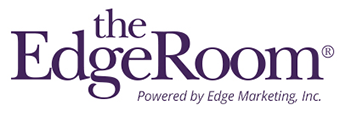iManage helps mid-size law firms respond to a changing legal market by becoming more agile
- Stasha Jain, Vice President of Legal and Compliance for Onit, an attorney with extensive experience for organizations including Onit, ZS Associates, Hewitt Associates and Venture Law Group
- Nick Whitehouse, General Manager of the Onit AI Center of Excellence, an AI expert focused on digital transformation for legal organizations
- Jean Yang, Vice President of the Onit AI Center of Excellence, a technologist who began her career as a solicitor and was named the Emerging ICT Leader of the Year 2019
- Letitia Hsu, CIPP/US, Associate Legal Counsel, Adobe Inc., in-house counsel within Adobe’s product legal group with experience in privacy, data security and intellectual property matters
To register for Legalweek(year) visit here.
Onit, AI and Contract Lifecycle Management
Onit recently launched two new AI-enabled technologies. Precedent, an artificial intelligence platform, reads, writes and reasons like a lawyer while automating and improving legal and business processes. ReviewAI uses artificial intelligence to quickly review, redline and edit all types of contracts. Nonlegal business users can automatically receive approved contracts via email or a self-service portal in less than two minutes. Lawyers and contract professionals can use the ReviewAI Word Add-in to automatically review, redline and edit contracts, including NDAs, MSAs, SOWs, purchase agreements, lease agreements and more against corporate standards. To schedule a demo or learn more, visit here.
Visit Onit During Legalweek(year)
Legalweek(year) attendees are invited to join exclusive demonstrations of Onit’s AI and automation technologies. Onit will be holding group and individual product demonstrations of ReviewAI and Precedent, as well as its solutions for Contract Lifecycle Management, Enterprise Legal Management and Legal Service Request. Email marketing@onit.com for more information or to schedule an appointment.
About Onit
Onit is a global leader of workflow and artificial intelligence platforms and solutions for legal, compliance, sales, IT, HR and finance departments. With Onit, companies can transform best practices into smarter workflows, better processes and operational efficiencies. With a focus on enterprise legal management, matter management, spend management, contract lifecycle management and legal holds, the company operates globally and helps transform the way Fortune 500 companies and billion-dollar corporate legal departments bridge the gap between systems of record and systems of engagement. Onit helps customers find gains in efficiency, reduce costs and automate transactions faster. For more information, visit www.onit.com or call 1-800-281-1330.



